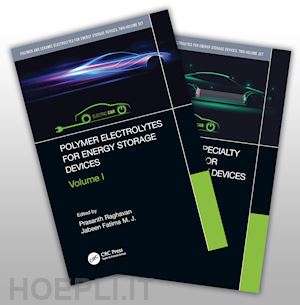Dr. Prasanth Raghavn is a professor in the Department of Polymer Science and Rubber Technology at Cochin University of Science and Technology (CUSAT). He received his PhD in Engineering from the Geyongsang National University in 2009, under the prestigious Brain Korea (BK21) Fellowship. He completed his B.Tech and M.Tech from CUSAT, India. After serving a few years as Project Scientist at the Indian Institute of Technology (IIT-D), New Delhi, he moved abroad for his PhD studies in 2007. His PhD research was focused on the fabrication and investigation of nanoscale fibrous electrolytes for high performance energy storage devices. He completed his Engineering doctoral degree in less than three years, an unbroken record in the Republic of Korea. After obtaining his PhD, Dr. Prasanth joined as a research scientist at Nanyang Technological University (NTU), Singapore, in collaboration with the Energy Research Institute at NTU (ERI@N) and TUM CREATE, a joint electromobility research centre between Germany's Technische Universität München (TUM) and NTU. After 4 years in Singapore, Dr. Prasanth moved to Rice University as a research scientist, where he worked with Prof. Pulickal M Ajayan, the co-inventor of Carbon Nanotubes. Dr. Prasanth was selected for the Brain Korea Fellowship (2007), SAGE Research Foundation Fellowship, Brazil (2009), Estonian Science Foundation Fellowship, European Science Foundation Fellowship (2010), Faculty Recharge, and UGC (2015). He received several international awards including the Young Scientist award from the Korean Electrochemical Society (2009) and the Bharat Vikas Yuva Ratna Award (2016). He developed many products such as high performance breaking parachutes, flex wheels for space shuttles, high performance lithium ion batteries for leading portable electronic devices and automobile industries. He has a general research interest in polymer synthesis and processing, nanomaterials, green/nanocomposites, and electrospinning. His current research is focused on nanoscale materials and polymer composites for printed and light weight charge storage solutions, including high temperature supercapacitors and batteries. He has published numerous research papers, books, and book chapters in high impact factor journals, and has more than 5000 citation and an h-index of 30 plus. Apart from science and technology, Dr. Prasanth is a poet, activist and a columnist in online portals and printed media. Dr. Jabeen Fatima M. J is a research scientist at Dr. Prasanth Raghvan’s research group at Department of Polymer Science and Rubber Technology (PSRT), Cochin University of Science and Technology (CUSAT), Cochin, India. Before joining to Dr. Prasanth’s research group, she was working as a tentative Assistant Professor at Department of NanoScience and Technology, University of Calicut, India. She received her PhD in Chemistry from Nanoscience and Technology from University of Calicut in 2016, India, with prestigious National Fellowship JRF/SRF from Council of Scientific and Industrial Research (CSIR), under Ministry of Science and Technology, Government of India. Her research area was focused on synthesis of nanostructures for photoelectrodes for photovoltaic applications, energy storage devices, photoelectrochemical water splitting, catalysis etc. She received her Science masters degree (MSc) in Applied Chemsitry (Oils, Fats and Aromatics) after receiving her B.Sc degree in Chemistry from Mahatma Gandhi University (MGU), Kottayam, India. She received many prestigious fellowships like CSIR-JRF, CSIR-SRF, Kerala State Council for Science, Technology and Environment (KSCSTE) Post doctoral fellowship etc. She is the University first rank holder in her master’s programme. She has published a good number of full length research papers in peer reviewed international journals and book chapters with international publishers. Dr. Fatima delivered many oral presentations and poster presentations in international conferences as the recognition of her innovative research in the field of energy storage solutions. Her current area of interest includes the development of flexible and free standing electrodes for printable and stretchable energy storage solutions and development of novel nanostructured materials and ternary composite electrodes and electrolytes for sustainable energy applications like super capacitors, fuel cells and lithium ion batteries.












